- Home
- Roy J. Snell
Red Dynamite
Red Dynamite Read online
Produced by Stephen Hutcheson, Rod Crawford, Dave Morganand the Online Distributed Proofreading Team athttps://www.pgdp.net
_A Mystery Story for Boys_
RED DYNAMITE
_By_ ROY J. SNELL
The Reilly & Lee Co. Chicago
COPYRIGHT, 1936 BY THE REILLY & LEE CO. PRINTED IN THE U.S.A.
CONTENTS
CHAPTER PAGE I Gold from the Sky 11 II The Bridge Falls 27 III With the Aid of Nicodemus 40 IV The Haunted Pool 52 V The Crimson Flood 62 VI Old Kentucky 76 VII Panther Eye's Return 85 VIII Ha! Ha! Big Joke! 94 IX The "Ghost" Walks Again 106 X Kentucky's Downfall 119 XI A Ride in the Night 133 XII Strange Wealth 141 XIII A Strange Bear Hunt 152 XIV Wild Men, Baboons, and Something Strange 162 XV Victory 175 XVI One Minute to Play 181 XVII Gliding Toward Fresh Adventure 193 XVIII Ten Gallons of Air 199 XIX With the Speed of a Whirlwind 210 XX In the Grip of a Giant 219 XXI Dynamite Takes It on the Chin 234
RED DYNAMITE
CHAPTER I GOLD FROM THE SKY
"You mean to say he takes those big, jug-like things down there empty andbrings them up full?" Johnny Thompson, the boy from Illinois who hadtravelled far and seen many strange things, stared at Ballard Ball, thered-headed boy of the Cumberland Mountains of Kentucky, with surprise. Ifthe truth were told, he found himself doubting the other boy's story.
Here he was standing in the grinding room of an old fashioned millwatching massive stone wheels grind the corn he had carted from hiscousin's store and at the same time discovering what promised to be afirst class mystery right down here in the slow old Cumberland mountainswhere, he had supposed, nothing unusual ever happened.
"But what's down there?" He was looking at the floor of the mill. At thesame time he was hearing a curious sound, a sucking and hissing thatmight, he thought, have been the working of a small steam engine. But ofcourse there was no steam engine, for there was no smoke stack and nosmoke.
"Nothing down there but water. Some machines he brought months ago.They're down there. The water wheel runs them," the other boy drawled."Of course he wouldn't bring water up in the jugs and cart them away. Whyshould he? There's water everywhere. This river runs for miles. Besides,"his voice dropped, "that stuff he brings up is queer. It's cold and itsmokes. Yes sir, a sort of white smoke comes off it all the time."
"White smoke," Johnny said slowly. "And it's cold. That's odd!"
"You'd have thought it was odd!" Ballard gave vent to a low chuckle. "Istood with my leg against one of those jugs--if that's what theyare--once and all of a sudden my leg tingled and went sort of dead. Ijumped away quick, but not quick enough. Three or four days after that,the skin all peeled off the side of my leg."
"Cooked your leg!" Johnny exclaimed.
"It must have!" Ballard amended.
"How--how long's he been doing it?" Johnny asked.
"Almost a year!"
"A year!" Johnny whistled. "And you never asked him what it was he wasbringing up nor how he got it?"
"No-o." The other boy smiled a queer smile. "He pays me for my work here,keeping the grinding mill going, pays me well and besides--" Hehesitated. "Well, you know, we mountain folks don't like for other peopleto ask us too many questions so, naturally, we don't ask too manyourselves.
"Not," he added hastily, "that there are not people round about here whoare burning up to know all about it. There are. But up to now nary a oneof 'em's learned anything worth telling."
"You're a good watchman," Johnny laughed.
"I sleep here at the mill," the mountain boy said simply. "And the lowerpart of the mill, down where he makes that--that stuff, whatever it is,is boarded up pretty tight, all two inch planks, spiked good and plenty.You see--" Ballard broke off. "Wait a little. There's Aunt Sally AnnSetser out there. She's got rheumatism, sort of stiff in her joints. I'lltake down her bag of corn to her."
Left to himself, Johnny allowed his eyes to roam about the place. Thiswas no ordinary grinding mill. It was much larger. Before the strangercame with his unusual hissing machinery or pumps, and his more unusualsomething that was produced apparently from water, or air, or justnothing at all, it had been used in other ways. He remembered hearingCousin Bill say it had been a sawmill, that logs had been floated down toit in the spring when the water was high. But now there were no more logsand no sawmill.
Johnny's eyes strayed through the open door and up to the crest of therocky ridge known as Stone Mountain. "Worth exploring," he told himself."Caves up there I've heard,--and bears. Sometimes the natives hunt them.Boy! Fellow'd have to watch out!" Johnny heaved a sigh of contentment. Heloved these slow-going mountain people, loved the mountains as well. Inthe spring when all the little streams, and the big ones too, wentrushing and roaring by, when the birds sang to the tune of those rushingwaters and white dogwood blossoms lay like snow banks against the hills,that was wonderful!
In the autumn when leaves turned to red and gold, when chestnut burs wereopening and the coon hunter's dogs bayed from the hills, that was grandtoo.
Yes, Johnny liked it all. But this mystery of the old mill promised tomake his stay doubly interesting. "Just think of an old man coming downinto these hills and setting up a mill for creating something of realvalue out of water and air," he murmured. "Gold from the sky, almost. ButI'm going to find out about it."
Once again his thoughts swung back to mountain scenes. His cousin Bill,who was a young man with a family, had moved down here and set up a smallstore. Bill was doing very well. Johnny was always welcome. He clerked inthe store, made trips like this to the mill and helped in every way hecould.
"Somebody told me there was a cave up there along the ridge," he said toBallard, as the boy came shuffling back into the mill room.
"Yep. There is. Regular good one!" he answered. "Lot of these whiteicicles in it. Look like icicles but not really icicles you know."
"Stalactites and stalagmites," Johnny suggested.
"That what you call 'em?" Ballard stared. "Looks like there might be aneasier name to say. But they're there anyway. Want to go up there? Don'thave to go back right away do you? I'll be through in less than an hour.Then we'll go up."
"We--ll," Johnny reflected for a moment. "Just so I get back by earlycandle light. I guess it will be all right." Just at that moment hadthere been any mountain imps about, and if there were such creatures asimps, we might imagine one whispering to Johnny: "As if you'd ever getback by early candle light!" But there are no imps, so there was nowhisper.
As Johnny stood there a feeling of uneasiness, not to say of guilt, creptover hi
m. At first he was at a loss to know what it was all about. Then,like a sudden bang from a squirrel hunter's gun, it came to him.
"Ran away!" he exclaimed in an undertone. "Ran away. That's what I did."
Yes, that was just what he had done. The call of the Cumberlands had beentoo much for him. The whisper of breezes among the hilltops, the chatterof squirrels in the chestnut trees, the gleam of water in deep poolswhere sly old black bass lurk, had been too strong for him. He had runaway.
Run away from what? The strangest thing! Not from his home. Johnny had nohome except the home of his grandfather at old Hillcrest. There he wasfree to come and go as he chose. He had not run away from his job either,at present he had no job. He had run away from a promise.
In Hillcrest, the little home city of his grandfather, there was acollege, not a large college, but a very fine one. The students were asturdy hard-working lot, the professors wise and friendly.
No, Johnny had not promised to attend college. "College is fine for somepeople," Johnny had said. "Fine for a lot of fellows, but not for me.Imagine me sitting still for a whole hour listening to a lecture on Platoor the fifth nerve of a frog. Some people are born for action. That's me.I can't sit still."
Action. Yes, that was the word, and it was action Johnny had promised. Hehad told Coach Dizney that he would get out and scout around among thenearby small cities for good football material. The coach had a goodteam--almost. He was short two or three good players. More than all elsehe needed a left half-back. Johnny had promised to find him thatparticular player.
"And I failed!" Johnny groaned.
So he had. Johnny did not play football. He was handicapped by a bad kneethat doubled up under him as soon as he ran fifty yards. But Johnny knewa good player when he saw one. Johnny was a lightweight boxer of no meanreputation. He could put a man through a series of action that told himvery quickly what he would be worth behind the line of scrimmage. EvenCoach Dizney admitted that it was uncanny the way Johnny picked them. Hehad sent Johnny out to scout, then had hurried away for a vacation in thenorth woods. Johnny had scouted faithfully for two weeks with no resultsworthy of mention. Then the call of the mountains had got him.
"I failed him," he groaned. "Failed the good old coach."
He was full of self reproach but the lure of the hills held him. Oh well,there were still two full weeks before college opened. He'd have abreathing spell here in the Cumberlands. Then he'd go back and pick 'em.Oh! Wouldn't he though?
A half hour later all guilty thoughts were banished by Ballard's cheerfuldrawl: "All right now, we can go. Buck Howard's here. He'll tend themill. Your corn will all be ground by the time we get back." Thesemountain mills, like the mills of the gods, grind slow but they grindexceeding fine. Cousin Bill made a nice profit by trading "brought on"groceries, sugar, baking-powder, and spices for corn. He had the cornground at this mill then shipped it out to special customers who likedthis fine ground corn meal.
"Here's little Bex Brice," Ballard said. "He wants to go along. Realname's Bexter, but we call him Bex. Old as I am, Bex is, but you forgotto grow, didn't you Bex?"
The short, sturdy-looking, freckled faced boy grinned and said, "Ireckon." Then they were away.
"I suppose you know every rock up here," said Johnny, as they wentscrambling up and up, over an all but perpendicular trail.
"Mebby I do," Ballard admitted. "But Bex knows 'em better. He's a regularmountain goat, Bex is."
"Saw a bear up here day before yesterday," Bex put in eagerly. "Regularbig one. Scared me half to death."
"Sure nuf?" Ballard paused to stare. "Must have come over the mountains."
Without quite forgetting the bear, they struggled on up the rocky slope.Johnny was thinking, "Suppose we get back into the cave and the bearcomes after us?" He did not quite know the answer to this. To ask,however, might be showing what these folks called "the white feather," sohe did not ask.
Instead he began wondering again what that old man could produce downthere beneath the mill, out of water and air. "He takes nothing down butbrings something up." Here indeed was a puzzler. "If he took some of thecorn down there you might think he was making moonshine whisky," he toldhimself. "And--and perhaps he does when Ballard is asleep. And yet--"
Someone had told him that this old man, Malcomb MacQueen, had a noblecharacter, that he had helped bring well educated teachers down to theschool at the fork of the river. "Wouldn't do that and then go peddlingpoisonous moonshine," Johnny thought. There had been men who did gooddeeds to cover up the evil that was hidden in their hearts. But somehow,he had a feeling that moonshine was not the answer. "What can it be?" heasked himself. Johnny's reflections were broken in upon by a word fromBallard.
"Listen," he whispered, as seizing Johnny's arm he brought him to asudden halt.
To Johnny's keen ears came a faint, high keyed sound.
"It's a pig, a young pig! He's squealing. Something's got him!" It wasBex who whispered this excitedly.
For one full minute the three boys stood there, breathing softly,silently listening. Then Ballard murmured low, "He's coming this way.We--we'd better hide." His eyes, searching the ridge above, spied acluster of beech trees clinging to the rocks. "Up! Up there."
Next instant, without a sound they were scrambling from rock to rock ontheir way up. Just as they reached the cluster of trees, Ballard's footloosened a rock that went bumping and bounding downward to make at lastone wide leap and land in a narrow meadow far below.
"Oh!" On Ballard's face was a look of consternation.
Johnny's lips formed one word: "Why?"
"There's been hog stealin'," Ballard whispered. "Uncle Mose Short haslost three. Lige Field lost two. If we catch the thief it will justnaturally be something."
For some little time after that there was silence. From time to time,ever a little louder, there came the frantic appeal of the pig.
Then, quite suddenly, a fresh sound burst upon their ears. A blue andwhite airplane came swooping across the ridge.
"Going to Frankfort," Johnny suggested, "or Louisville." To him thesoaring plane was not a novel sight. To the mountain boys, it was anobject of wonder. Even Johnny was surprised and a little startled whenthe plane, instead of streaking across the sky, circled twice then, likesome lone, wild duck, came to rest on the narrow meadow far below.
"Motor trouble forced him to land, perhaps," Johnny whispered.
"Reckon we can't hardly be sure of that," was Ballard's surprising reply."Judge Middleton rented that meadow to a stranger. When he asked him whathe meant to do with it he said he wasn't prepared to say. Mebby he's justgot it for his airplane."
"Boy! Oh, boy!" Bex whispered excitedly. "I sure do hope so! I've alwayswanted to see one of them things right close up. I--"
"Sh!" Ballard put a hand over the small boy's mouth. There was scarcelyneed for this. At that moment from very close at hand, there came theheart-rending cry of a baby pig in mortal terror. And, before one of theboys could move or breathe, along the trail, below them and all tooclose, there came the hugest bear they had ever seen. And closely grippedbetween his gleaming teeth was the hopeless porker.
"There--there's your hog thief," Johnny whispered low, as the bearvanished round a boulder. "What you going to do about it?"
"N--not a thing," Ballard stammered. Whereupon the three boys, seizedwith a nervous desire to laugh, all but burst their sides holding in.
In the midst of this, Ballard sobered with a suddenness that wasstartling. With a shaky finger he pointed as he hissed: "Look! Just lookdown there!"
The other boys looked, then stared. Almost directly beneath them was anarrow, swinging bridge across a rocky chasm. It was a foot bridge madeof boards and light cables. Ballard had crossed this bridge hundreds oftimes, but always on foot. Never had he seen horse or mule attempt tocross it. But at this moment, as they stared, expecting instantcatastrophe, they saw, standing at the very center of the old and fragilebridge, a huge, black mule.
"It's Sa
mbo," Ballard said hoarsely. "Uncle Mose Short's Sambo! Poor oldUncle Mose! His mule will never make it. The cables are sure to break.The mule will be killed. It's the only mule Mose ever had, or ever willhave. Wonder what made him try to cross?"
"Got untied somehow," Bex suggested. "Went out hunting for Mose. We gotto do something. We really must."
Just at that moment, the small pig gave an unearthly squeal.
"The bear!" Ballard whispered in an awed tone. "He's up there ahead of uson the trail somewhere. There's no way to get down to the bridge but togo right up ahead there where the bear went."
Johnny rose. He wanted to go but something seemed to hold him back. Heknew Uncle Mose, the oldest mountaineer of that region, knew and lovedhim. Uncle Mose was a famous cook. He could make the most marvelousstewed chickens and dumplings. Uncle Mose's mule should be saved somehow.But how?
Just then Ballard spoke. "Look! There's someone coming from the otherway! Why! It's Mr. MacQueen! The man that owns our mill!"
Johnny stared. So that was the man! The man who went down into thatmysterious lower portion of the ancient mill. "He takes down empty jugsand brings them back up full," he whispered to himself.
"Malcomb MacQueen, that's his name," Ballard said as if he had readJohnny's thoughts.
This small, gray haired man with a quick nervous stride had appearedaround a bend. At sight of the mule on the bridge, he stopped and stared.He stood there for ten seconds only. Then he sprang forward.
"Look!" Ballard was on his feet, ready to slide down the slope to thetrail and to follow that trail, to face the bear and fight him if hemust. "Look! Mr. MacQueen is going on the bridge! And he must not! Mustnot! The cables won't hold another pound. One side is half rusted away.Come on! Come on! Come quick!" Slipping and sliding, he led the way downthe steep slope to the trail below.
Johnny's mind was in a whirl. "The bear, the bridge, the mule, MalcombMacQueen," he thought over and over. For all that, he followed Ballard asclosely as he dared.
Strangely enough, at that moment, like a sudden burst of light, his dutyto Hillcrest College and the coach stood out before him. If he went downthere when would he come back? Somehow he felt himself being drawn fromthe path of duty. And yet, when approaching tragedy calls, one must obeythat call.

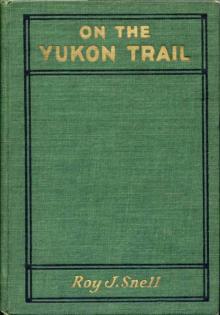 On the Yukon Trail
On the Yukon Trail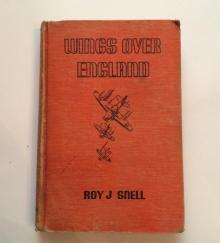 Wings over England
Wings over England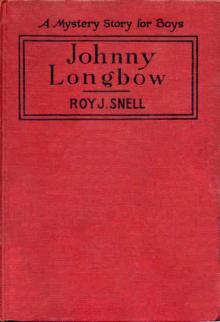 Johnny Longbow
Johnny Longbow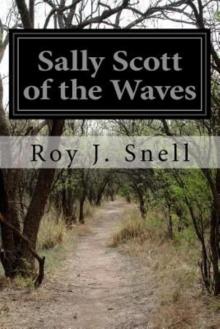 Sally Scott of the WAVES
Sally Scott of the WAVES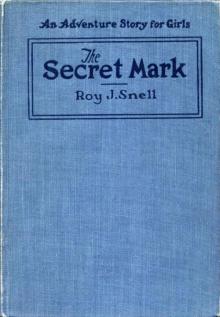 The Secret Mark
The Secret Mark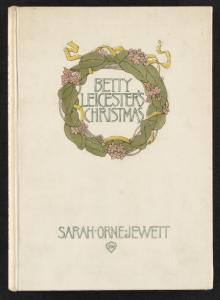 Betty Leicester's Christmas
Betty Leicester's Christmas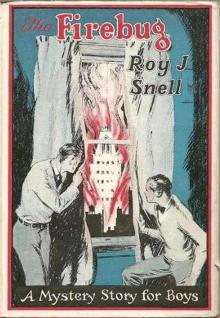 The Firebug
The Firebug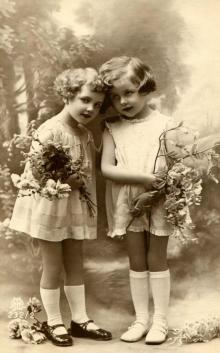 Minnie Brown; or, The Gentle Girl
Minnie Brown; or, The Gentle Girl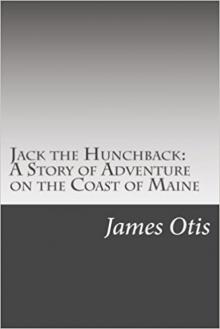 Jack the Hunchback: A Story of Adventure on the Coast of Maine
Jack the Hunchback: A Story of Adventure on the Coast of Maine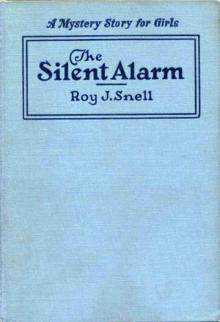 The Silent Alarm
The Silent Alarm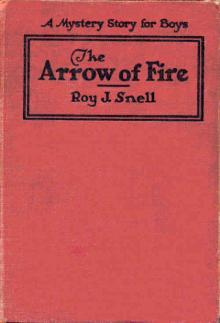 The Arrow of Fire
The Arrow of Fire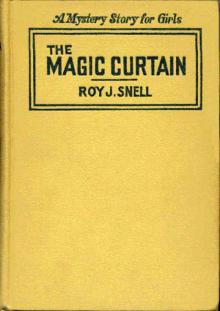 The Magic Curtain
The Magic Curtain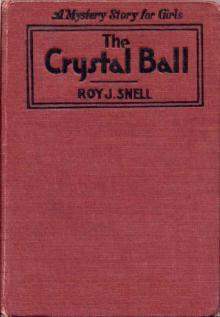 The Crystal Ball
The Crystal Ball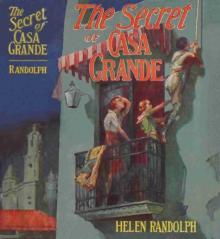 The Secret of Casa Grande
The Secret of Casa Grande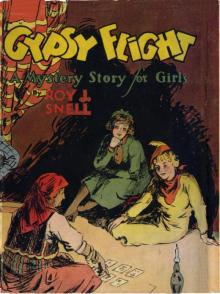 Gypsy Flight
Gypsy Flight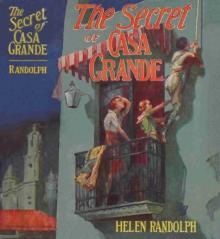 The Mystery of Carlitos
The Mystery of Carlitos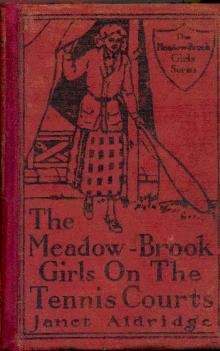 The Meadow-Brook Girls on the Tennis Courts; Or, Winning Out in the Big Tournament
The Meadow-Brook Girls on the Tennis Courts; Or, Winning Out in the Big Tournament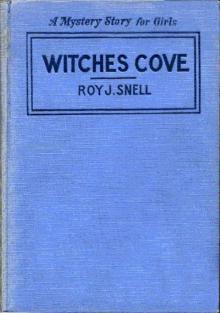 Witches Cove
Witches Cove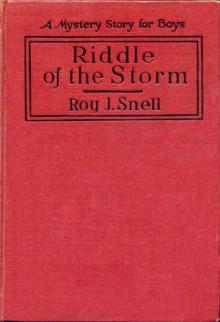 Riddle of the Storm
Riddle of the Storm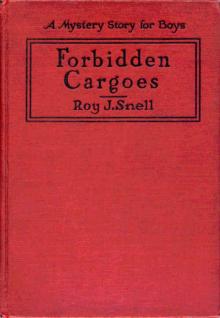 Forbidden Cargoes
Forbidden Cargoes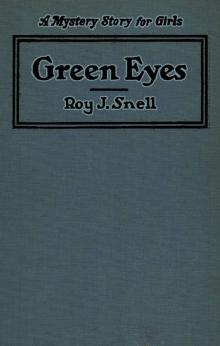 Green Eyes
Green Eyes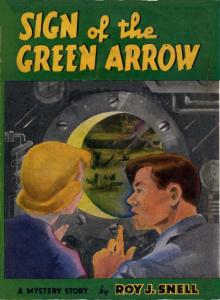 Sign of the Green Arrow
Sign of the Green Arrow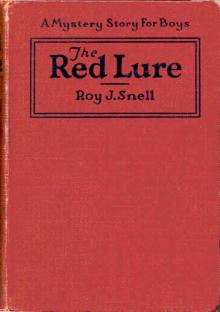 The Red Lure
The Red Lure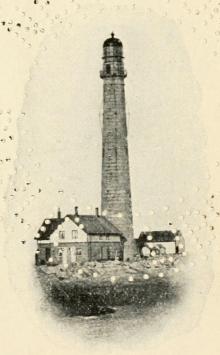 The Light Keepers: A Story of the United States Light-house Service
The Light Keepers: A Story of the United States Light-house Service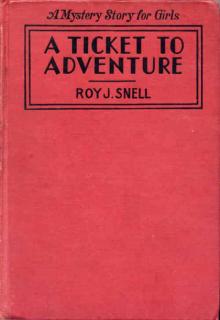 A Ticket to Adventure
A Ticket to Adventure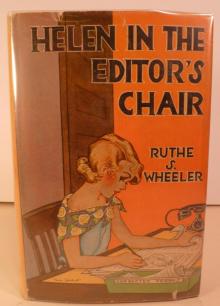 Helen in the Editor's Chair
Helen in the Editor's Chair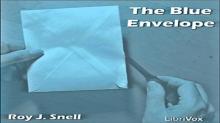 Blue Envelope
Blue Envelope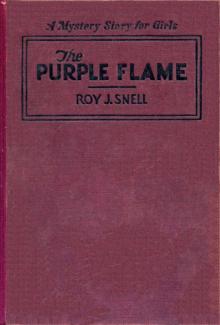 The Purple Flame
The Purple Flame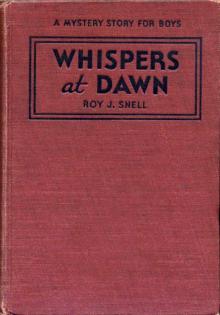 Whispers at Dawn; Or, The Eye
Whispers at Dawn; Or, The Eye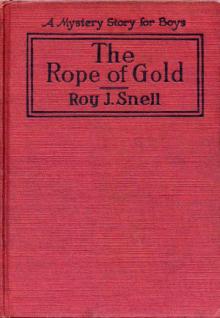 The Rope of Gold
The Rope of Gold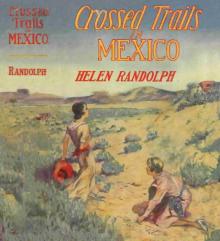 Crossed Trails in Mexico
Crossed Trails in Mexico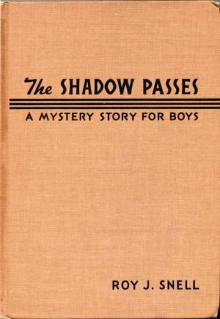 The Shadow Passes
The Shadow Passes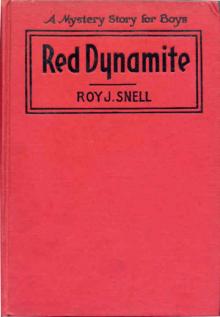 Red Dynamite
Red Dynamite Blue Grass Seminary Girls on the Water
Blue Grass Seminary Girls on the Water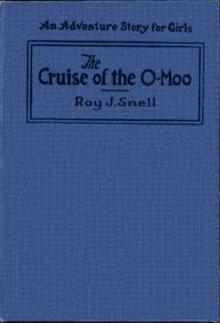 The Cruise of the O Moo
The Cruise of the O Moo